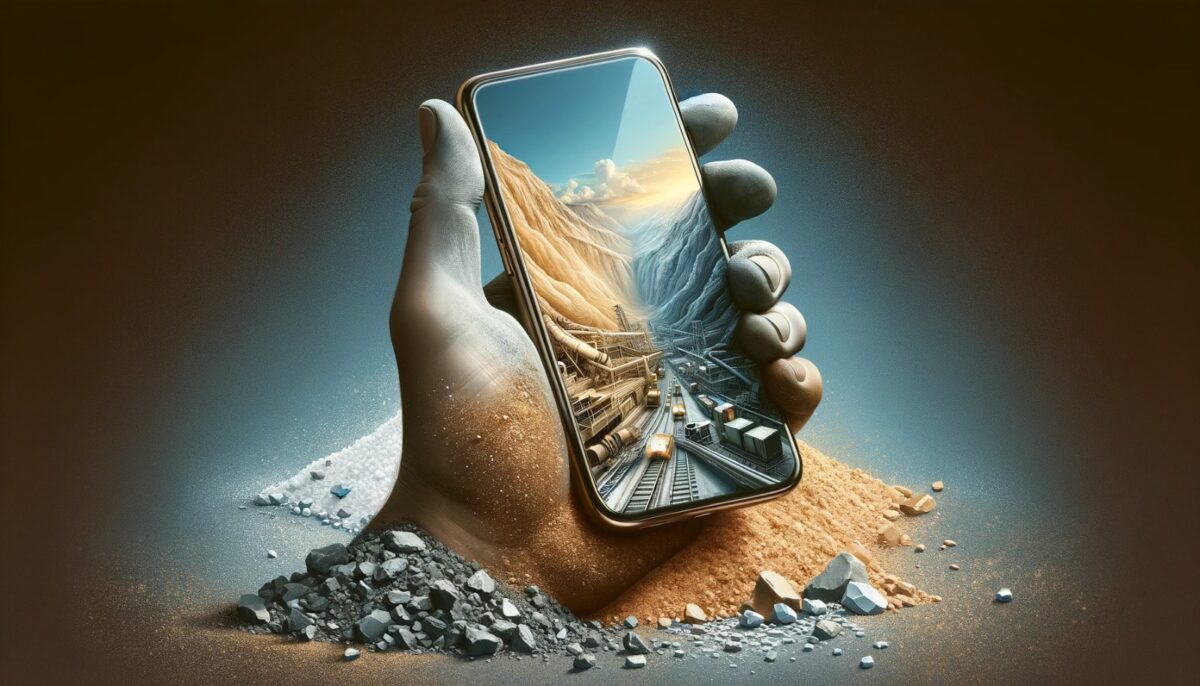
Fazal Masood Malik and Farhan Khokhar, Canada
What ethical sacrifices enable our newest devices?
The minerals powering sleek smartphones and electric cars often originate from mines relying on exploitative labour. While contemporary, this echoes the tragic Congolese legacy of Belgian King Leopold II. His 1885 seizure of the Congo promised humanitarian uplift but delivered widespread atrocities from rapacious mining and deforestation, costing upwards of 10 Million lives. (“Feb 5, 1885 CE: Belgian King Establishes Congo Free State”, nationalgeographic.org) Modern profiteering evokes colonial abuses, demanding technological innovation reassess its moral blind spots. Ethics matter, even for futuristic industries.
Earth’s resources are divine gifts, not possessions to pillage recklessly. Yet humanity’s relentless material progress has spurred uncontrolled mining with little heed to sustainability or ethics. As the Holy Quran reminds us, “And do not seek mischief in the earth. Indeed, Allah does not like those who make mischief.” (Surah al-Qasas, Ch.28: V.78). Contemporary extraction has imposed grievous corruption, demanding urgent realignment with Islamic principles of stewardship and justice.
Environmentally, unrestrained fossil fuel extraction drives climate change. Burning oil, gas and coal emits greenhouse gases that disrupt weather, inundate coasts and threaten nature’s balance. Mining itself ravages landscapes and pollutes ecosystems. Even the headlong rush into green technologies requires more mining, risking the repetition of destructive exploitation. As custodians of nature, it is our obligation to halt such desecration.
Rare metals embody modernity’s paradox. Their futuristic allure empowers revolutionary technologies, from smart devices to electric vehicles; while some rare metals are used in dental implants, X-ray machines, and life-saving cancer drugs. Yet extracting these miracles of minerals often imperils vulnerable communities. Cobalt and coltan extracted for phone and car batteries still curse Congo through unethical mining. Villages are razed and livelihoods ruined as miners scrounge hazardous pits for pennies.
Socially, mining activities displace communities and upend livelihoods like farming and fishing. Wealth accrues unevenly, engendering inequality and discord. The “resource curse” turns mineral riches into engines of graft and conflict across the developing world, betraying the Quran’s vision of wealth utilised in God’s service for the common good (Surah az-Zukhruf, Ch.43: V.33). Equitable benefit-sharing remains an unmet goal.
Geopolitically, mineral hunger stokes rivalries. Fossil fuels confer power, while tomorrow’s economy will run on lithium, cobalt and rare earths. There is a race between political blocs to acquire monopoly control over resources.
The Holy Quran cautions against material excess, stating, “Stretch not your eyes towards what We have bestowed on some classes for them to enjoy for a short time […]” (Surah al-Hijr, Ch.15: V.89). This aligns with and reinforces guidance from Hazrat Mirza Masroor Ahmad, Khalifatul Masih Vaa on ethical resource use:
“Allah, The Almighty, teaches that worldly wealth is but a temporary means that you see. Even if you acquire it, this wealth will inevitably disappear, and not only that, but it will leave behind a state of constant turmoil. Thus, it is important for the peace of the world that each country and nation derives benefit from its own resources, and it should not look covetously upon the wealth of others.” (“The Ahmadiyya Muslim Khilafat: Essential Guidance for a Troubled World”, www.khalifatulmasih.org)
Fundamentally, the challenge is balancing development and ecological limits. Current mining practices have breached those limits. While forgoing extraction altogether frustrates the growth ambitions of poor nations, improvement is imperative. With better governance and ethics aligned with the Quranic imperatives of stewardship and justice, extraction can enable equitable prosperity without sacrificing the planet.
This requires stringent laws and monitoring to compel firms towards environmental responsibility. Conservation areas can shield fragile ecosystems. Mandating comprehensive impact assessment and mitigation would force miners to internalise ecological costs. Policies that encourage less invasive techniques like in-situ leaching would also limit harm. Such innovation can unlock national mineral wealth without sacrificing cherished landscapes.
Revenue distribution needs rethinking to prevent inequality and discord. Direct transfers of mining income through dividends is one model. Requiring local hiring and mine-adjacent infrastructure spreads gains more widely. Having communities as equity partners boosts consent and sustainability. Strong institutions and governance, with international assistance, are crucial to administering these measures transparently.
Internationally, cooperation on sustainable mining should expand. Swapping expertise between developing countries would accelerate the diffusion of responsible models. Multilateral financing can help build human capital and institutions for good resource governance. Collective action in a spirit of solidarity, guided by Islamic ethics, offers a path to shared prosperity through mining.
With wisdom and conscience, extraction can enable development without breaching ecological boundaries. The Holy Quran lights the way towards mining practices and governance aligned with Islamic environmental and social justice. If pursued sustainably and equitably, the earth’s resources can truly uplift all peoples.
But this also requires reflection on our own choices. Our relentless appetite for the latest gadgets and electronics that make mining so profitable often lacks a real purpose beyond vanity. Can we justify how the minerals in our newest phone or laptop may enable the exploitation of child workers in Mongolian mines? Restraining our own desires is crucial for building a just world where no one’s livelihood depends on the destruction of the planet and others’ lives.

